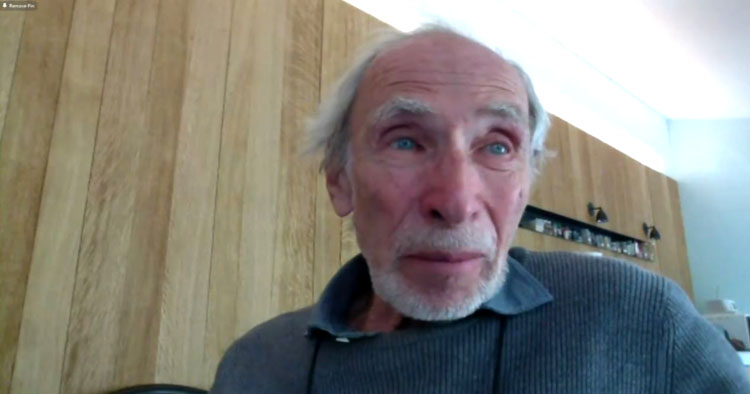Prof. Eric David, lawyer, specialist in international criminal law and international humanitarian law, addressed the August 27th international conference “Iran: 1988 Massacre and Genocide – No to impunity, yes to accountability”
Thank you very much Madam President, Madam Moderator, for this invitation to speak, but I am not going to be able to say anything very original in relation to everything that has been said here, and with which I fully agree.
It is obvious that the crime committed in 1988 against the 30,000 members of the People’s Mojahedin Organization of Iran is clearly a crime against humanity that meets all the criteria found in Article 6,c. of the statute of the Nuremberg tribunal, to article 7 of the current statute of the international criminal court which appears to be certainly the expression of customary international law, so there is no doubt about it, there was both the contextual criterion, namely these crimes were committed as part of a systematic and widespread attack against civilian population, members of the People’s Mojahedin Organization of Iran, and on the other hand the material element which is constituted by a murder which was committed in this case against these people, so from this point of view there is no doubt that it is indeed a crime against humanity.
And we can go further, and say that it is indeed a crime of genocide because these people were killed because of their belonging to a current of Islam that was challenged by the mullahs’ regime, so for religious reasons, for belonging to a religion these people were massacred, they were considered as apostates, so it corresponds perfectly to the definition of Article 2 of the 1948 Convention on genocide. So there is no doubt that these facts are indeed facts of genocide, even if the word genocide is sometimes used in a slightly excessive way, the fact remains that here, in this particular case, this case of the massacres of 1988 can legally be qualified as genocide.
Now, as far as the creation of an international criminal court to deal with these crimes is concerned, yes, it is a good idea that should certainly be encouraged, without forgetting, however, that these are crimes that justify the application of universal jurisdiction and that, in other words, all the jurisdictions of the world are perfectly entitled to deal with this crime. If a current leader of the Iranian regime is found in any state on the planet, the prosecution of this court, the prosecutor of this state, can perfectly indict this person for the crimes that were committed in 1988, since this person appears to have a responsibility in these crimes.
So yes, of course, for an international criminal jurisdiction, yes also for the exercise of universal jurisdiction in all states with regard to the perpetrators of these crimes has not raised any legal difficulty, the only important issue is to ensure that the international community as a whole, and in particular the United Nations, mobilizes to call on states to prosecute the perpetrators of these crimes wherever they are and whatever their nationality. I think that this is something, it is a duty that belongs to the international community, which unfortunately has too often revealed itself to be singularly mute, singularly silent, with regard to atrocities that take place somewhere on this planet.
That is the essence of what I wanted to say as a specialist in international criminal law and international humanitarian law, and I wish the People’s Mojahedin Organization and the National Council of Resistance of Iran success in a struggle that has not only equality but also legitimacy.
